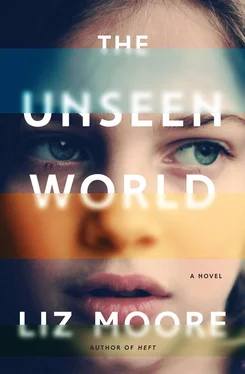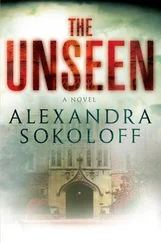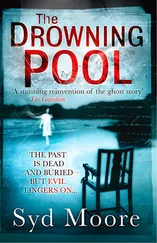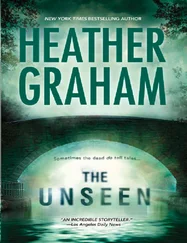Their second child, Harold Canady, Jr., was born on January 2, 1918. I could find no death record for him in Olathe .
However — and this is purely anecdotal — I mentioned the interesting task you’ve given me to a colleague here at the library, and she knew the Canady family. In fact, she went to the church where Harold Canady, Sr., used to preach. And she told me that after attending college, Harold Jr. went on to work for the Civil Service in Washington, D.C., and wasn’t seen nor heard from again — that is, until the town received word of his death. She believes it was a car accident. This would have been sometime between 1947 and 1952, she thinks. It was just after the war, anyway. You might do well to look in the Washington Times Herald or the Post.
She remembers this, my colleague here, because she recalls Reverend Canady praying about it at church. Terrible thing to lose two children .
I hope this is helpful. Please let me know if I can be of further assistance .
Sincerely ,
Fred Coburn
Olathe Public Library
“What’s wrong, Susan?” said Harold Canady, trying to be brave, though truly he didn’t want to know. He was ten years old. He was standing in a sort of shed, a hastily constructed little room with the sharp shadowy smell of rust. He was shivering: it was early March, and very cold. The year was 1929.
His sister, Susan Canady, was crying. She was wearing her winter coat, which this year was too small for her. She was sitting on the dirt floor and leaning against a wall, despite the splinters she was sure to pick up from the rough unfinished wood. Her head was on her arms, which were folded over her knees. And she was weeping: Harold had heard her from outside. That’s how he’d known to come in. This shed was where they came, the two of them, to sort things out, and sometimes to avoid their father. Susan was his favorite person: she was five years older than he was, raucously funny when she wanted to be, pretty in a round unstartling way. She had only two dresses (her father thought that more would encourage vanity) but she took very good care of them, sewed well, arranged her hair in flattering mysterious styles.
“Tell me what’s wrong,” said Harold again. He was on shaky territory. He tried to guess. Not their father: there had been no incident with him, not that Harold knew about. He would have heard it. Their house was small, and he was always in it (something Susan sometimes pointed out when she was feeling unkind—“Go outside, Harold, for once in your life,” she instructed him).
It was something with a boy, then, he guessed. There had been several recently, hanging around: he had seen Susan with them at school and once on the main road, too. But when he proposed this—“Is it a boy?” he asked, embarrassed — Susan only shook her head violently, overtaken by her own sobs, drowning in them.
It was not quite like seeing an adult cry — not quite — but it was almost as bad. For as long as he could remember, Susan had seemed untouchable, wise, well versed in everything Harold wished to know. She was, generally, composed, wry, knowing. She laughed loudly, her mouth open. She rarely cried. She protected him when it was important. She was popular at school and made him — if not liked —then tolerated, adopted as a sort of odd mascot. She rolled her eyes impeccably; she gestured with her hands in a way that fascinated Harold, who tried to imitate her until, one day, his father slapped his hands, told him he looked like a girl when he did that.
Harold looked around the shed. There were six empty cans of whitewash on a high-up shelf. There were twelve bags of Diamond chicken feed below them. There were twenty-four small wooden posts, the start of a set of chairs, on the floor. The pattern distracted him.
“I’m going to have a baby,” said Susan.
He didn’t understand.
“I’m expecting,” said Susan. She still had her head against her arms. Her voice was muffled. “Don’t you know what expecting is?”
Harold bristled, as he did whenever he felt his intelligence was underestimated. Of course he knew what expecting meant. What he didn’t know, exactly, was how a person got a baby inside her. But he knew that it was not a thing that should happen to a girl of fifteen, an unmarried girl. He had heard whispers about other girls it had happened to in the past: the youngest parents of his friends, for example. People who got married at Susan’s age.
“Aren’t you going to say anything?” Susan asked, finally looking up. Her face was frightening: red and wretched, wet with tears. Her hair was matted into a sort of single mass, as if she had been sweating — though it was cold enough in the dim shed to make Harold shiver.
“Have you told Daddy?” said Harold.
“I’ll never tell him,” said Susan, so quickly and viciously that Harold flinched. “He’ll kill me. Do you understand? He’ll actually kill me. You can’t tell him, either.”
Their mother did not enter the conversation. She did what their father said. She rarely made eye contact with either of them: out of shame, Harold thought sometimes, for being unable to protect her children. She had turned off some switch inside herself long before Harold was born. He wondered sometimes what she had been like as a child.
“Promise,” said Susan, wild-eyed.
“I promise,” said Harold.
“Swear it,” said Susan.
“I swear it,” said Harold.
He wanted to ask her what she was going to do, but he had pressed his luck enough, he decided. He felt a vague sense of awe that Susan had told him as much as she had.
The next day was Sunday, and on Sundays they spent the whole day in church. Susan looked woozy and faint. Harold studied her: Was she bigger? Was her stomach bigger? He couldn’t say. She had never been a small girl, and if she looked rounder now it wasn’t enough to draw attention.
“Quit staring,” she hissed finally.
Their father, from the pulpit, spoke frightening words about damnation. For most of Harold’s life, he had seemed like God: the decisiveness with which he cast behaviors and emotions into the categories of good and evil ; the authority he bore naturally and gracefully, like a mantel over his impressive shoulders; the knack he had for knowing when anyone was lying. He bragged about this final quality; he was proud of it. “I’m everywhere,” he said to his children. “I know everything.” And it was also what he said about God.
There was no library in their town. The nearest one was in Olathe, and sometimes when Mr. Macklin had to go there to visit a friend on a Saturday, he let Harold ride along beside him. He dropped Harold off at the Carnegie building on North Chestnut Street, which offered a surprisingly complete collection of both fiction and reference books. There, Harold spent long hours reading what he could find — including, at one point, the eleventh edition of the Encyclopædia Brittanica , from start to finish (except for Volume 12, Gichtel — Harmonium , which was missing, and therefore acquired added intrigue in Harold’s mind; he felt certain that he was being deprived of the most important secrets of the whole endeavor).
The Saturday following his sister’s announcement, he sought out Mr. Macklin, who, by chance, was heading into town, and when he got to the library he went directly to the reference section, and selected from it Volume 22, and searched it for Pregnancy , glancing over his shoulder repeatedly and guiltily. But it yielded no results. Volume 3, however, contained within it an entry on Birth , which Harold quickly skimmed for useful details, anything helpful he could bring back to Susan, like a Labrador with a stick. The best-case scenario, he imagined, would be if he could find her a solution that might make the pregnancy go away: just disappear, sort of. Unmanifest itself, just as it had manifested itself, mysteriously, darkly, a curse that had befallen his sister. It did not seem to him that a child could be inside her: this was too much of an abstraction, to Harold. He couldn’t imagine it. In fact, it made him envious: he didn’t like the thought of Susan loving anything more than him.
Читать дальше












